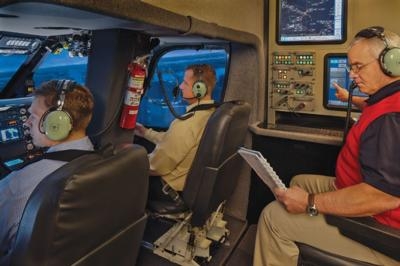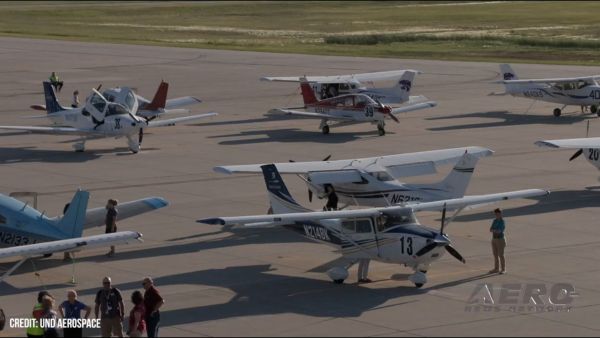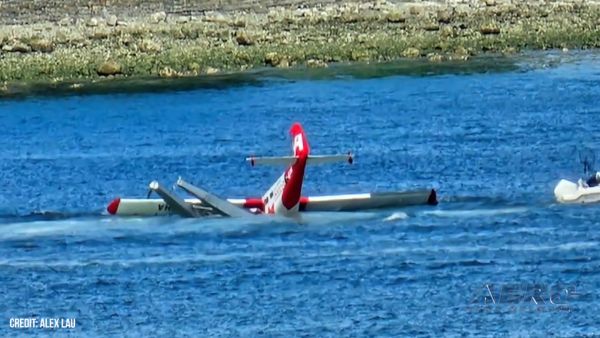Tue, Nov 01, 2016
Builds On The Fundamentals Covered By Initial And Recurrent Training
FlightSafety International announces the introduction of its Master Aviator program for helicopter pilots. The progressive Master Aviator curriculum builds upon the fundamentals covered by initial and recurrent training. FlightSafety Master Aviator for helicopter pilots is earned by completing two advanced aircraft-specific core courses and a choice of four electives. At least one FlightSafety initial or recurrent training event must also be completed every 8 months.

“We are pleased to now offer the FlightSafety Master Aviator program for helicopter pilots,” said David Davenport, Executive Vice President. “Master Aviator sets a new standard for pilot achievement and recognition, and helps pilots to develop a deeper knowledge of the helicopter they fly and to ensure a safe and correct response to a broad range of demanding, unexpected situations.”
The one-day core courses include Helicopter Human Factors / Crew Resource Management (HF/CRM) and Surviving Inadvertent Instrument Meteorological Conditions (IMC). The CRM course enables the pilots to master the key aspects of CRM that uniquely apply to helicopter operation. This includes situational awareness, conflict resolution and communication skills. They will also experience how effective crew performance and decision-making can overcome situations caused by error chains, human factors and fatigued or stressed operators.
The IMC course will help the pilots to be fully prepared when weather conditions unexpectedly and rapidly change in order to have sound and well-practiced strategy to maintain the safety of their aircraft. This course provides the tools needed to react appropriately as decisions made in the first pivotal moments often decide the outcome. Pilots will also review and fully understand the major causes for inadvertent IMC accidents and master best practices for the safest responses.
The elective courses include Helicopter/Rotary Wide Area Augmentation System (WAAS) and Automatic Dependent Surveillance-Broadcast (ADS-B); Fatigue Management; Safety Management Systems for Aviation Professionals; Air Medical Resource Management; Warm Weather Operations; Cold Weather Operations; Adverse Weather and Monsoon Conditions; Helicopter Approach and Landing Accident Reduction (ALAR); and Controlled Flight Into Terrain (CFIT). Other specialty and enrichment courses include General Emergency Training; Night Vision Goggles (NVG) Initial and Recurrent; Corporate Aviation Security; Hazardous Materials (Will Not Carry); Safety Management System (SMS) for Managers; and Weather Radar.
(Source: FlightSafety news release)
More News
An Amazing Experience Awaits The Chosen Few... Oshkosh, to us, seems the perfect place to get started on watching aviation recover the past couple of years... and so ANN is putting>[...]
“NBAA has a tremendous responsibility to the business aviation industry, and we are constantly collaborating with them. Our flight departments, professionals and aircraft own>[...]
Dead Reckoning Dead reckoning, as applied to flying, is the navigation of an airplane solely by means of computations based on airspeed, course, heading, wind direction, and speed,>[...]
Aero Linx: Vertical Aviation Safety Team (VAST) We are a public–private initiative to enhance worldwide flight operations safety in all segments of the vertical flight indust>[...]
We're Everywhere... Thanks To You! Even with the vast resources and incredibly far-reaching scope of the Aero-News Network, every now and then a story that should be reported on sl>[...]
 ANNouncement: Now Accepting Applications For Oshkosh 2024 Stringers!!!
ANNouncement: Now Accepting Applications For Oshkosh 2024 Stringers!!! Aero-News: Quote of the Day (06.13.24)
Aero-News: Quote of the Day (06.13.24) ANN's Daily Aero-Term (06.13.24): Dead Reckoning
ANN's Daily Aero-Term (06.13.24): Dead Reckoning ANN's Daily Aero-Linx (06.13.24)
ANN's Daily Aero-Linx (06.13.24) ANN FAQ: How Do I Become A News Spy?
ANN FAQ: How Do I Become A News Spy?



